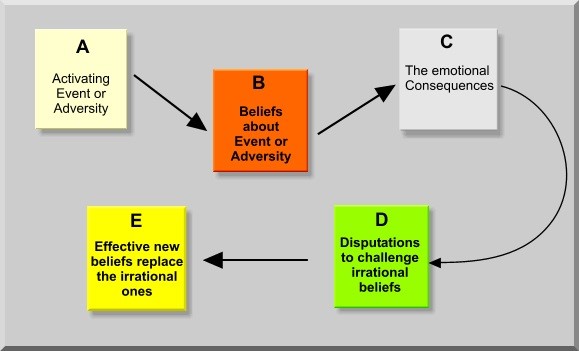
Put a Name to What You Are Thinking, Feeling and Believing
Over the last few weeks, you have likely been inundated with articles, webinars, etc. about the following:
- Leading during a crisis
- Short, medium- and long-term business scenarios that will impact your strategy
- Economic impacts of COVID-19
- Working productively from home
- Managing a remote team
- Hiring and onboarding new (and remote) employees
- Caring for your own mental health during COVID-19
- Caring for others during COVID-19
- Parenting during a Shelter in Place policy—dealing with virtual school
- Communicating effectively—strategies and tips to keep in touch with staff, your team, and customers
I have been inundated with these articles and I have also sent them to my current and previous clients. While overwhelming at times, some of these tips are very helpful. If you are interested in what we have collected here at The Bailey Group, send me an email and I will be glad to share an article or two!
In writing this blog, I was humbled by what I could possibly add that is unique. And then, I realized, that perhaps it isn’t all that different than what I often blog about. It’s a subject that is endlessly fascinating and always top of mind at The Bailey Group . . . your success as a leader is directly correlated with your ability to grow as a human being. And, if anything provides you with an opportunity to practice being a human being, it’s this COVID-19 crisis!
One of the core characteristics of extraordinary humanness—and thus leadership– is self-awareness—the ability to know and put an accurate name to what you are thinking, feeling, and believing IN THE MOMENT. And, remember that those thoughts, feelings and beliefs impact how you perceive and respond to situations you face.
For some of our clients, emotions are on a roller coaster, sometimes day by day or hour by hour. One moment we are grateful to have a job, other times we are jealous of the free time those who are furloughed have. One moment we are worried about the future of our job, our team or our organization and the next, we are feeling like life hasn’t changed much at all. One model, which I learned in my graduate program in Counseling Psychology over X years ago (too many to want to think about), is the ABCDE model, pictured below.
Originally created by Albert Ellis, this model shows the impact of our own beliefs on the emotional consequences we feel in the moment.

What this model describes is that your reactions to “activating events” (e.g., long term risks to your job or business) are mediated by what your personality, and in particular, what you believe. For example, if you believe that your company and your job is essential, and your organization is doing what it can to protect employee jobs, you may not be feeling worried about the future. But, if you believe the future of your industry (while okay right now) could be in jeopardy, you may not be feeling so confident about your job future.
What this model also suggests is if your emotions are troubling or out of control (sound familiar?) you can look to your beliefs as a way to calm yourself or others. So, leaders, be aware that your own beliefs (e.g., your risk of getting sick, losing a job, laying off employees, concerns about employee productivity) WILL and DO impact how you show up to your employees—in what you say and what you do. And, like it or not, your employees are watching you!
So, for a moment, take a deep breath, close your eyes and tune in. This mindfulness practice is a first step in managing those pesky fears or anger, because it gives you a moment to name what you are feeling/thinking/believing. And neurobiology research shows that the quickest way to start relieving a negative emotional cycle is simply to name it accurately, without blame or explanation. What are you really feeling right now? Next, examine the beliefs behind that feeling. What beliefs do you have that are bringing you confidence and strength as a leader, or are pulling you into your bed with the covers over your head?
Lastly, look at the truth and/or accuracy of those beliefs. Don’t necessarily believe everything you think! Recognize the difference between what you KNOW to be true and what is uncertain. Acknowledge the difference between what WILL happen vs. what MIGHT happen. This practice of disputing beliefs and entertaining new, more rational ones can help bring us out of the funks that are plaguing some of us. . . me, you, and your employees. Need some help identifying the beliefs that are getting in your way? Call me or send me an email. I’ve been helping clients do this for over 30 years. In the meantime, stay safe and stay healthy.



